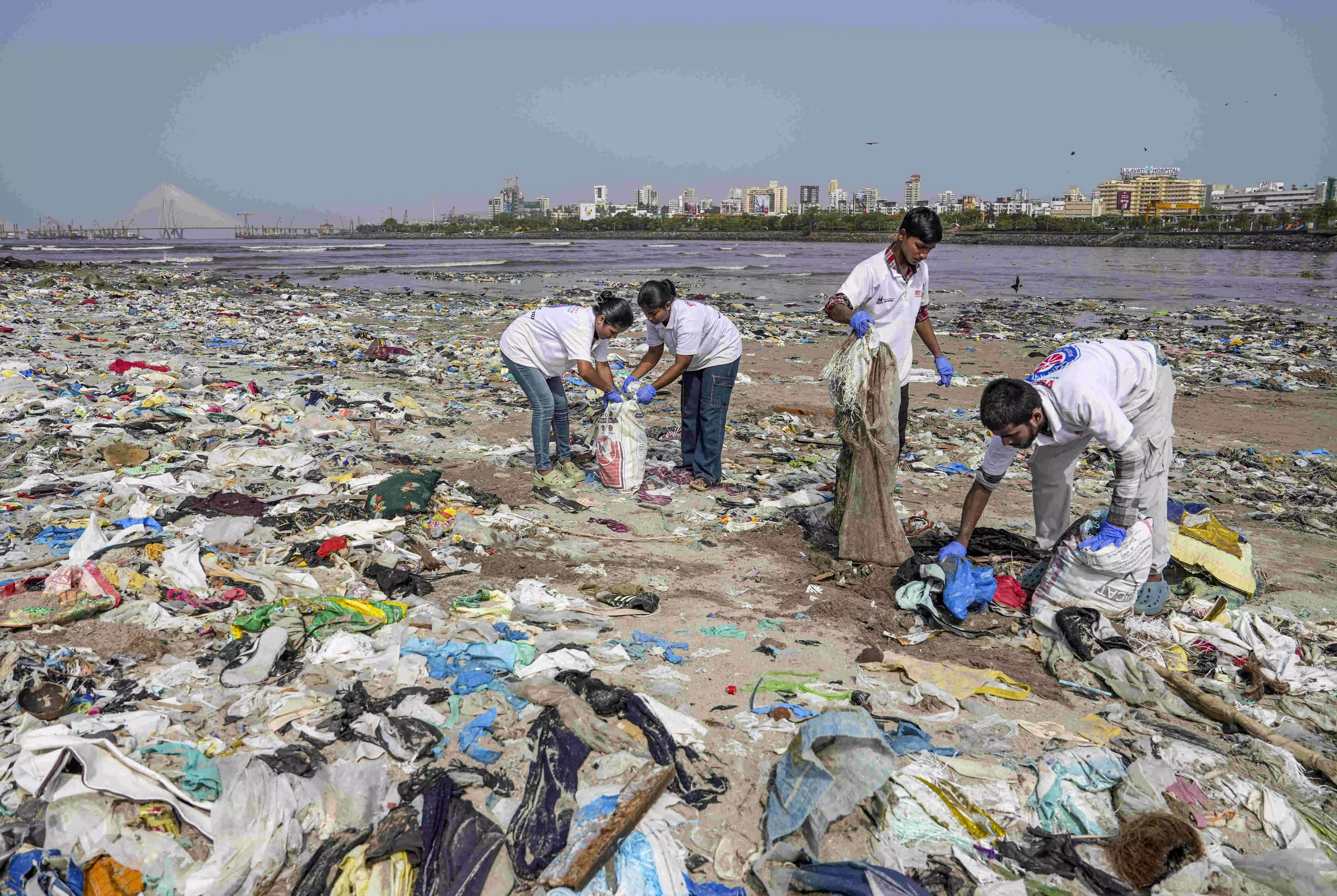World Environment Day: From policy to enforcement, UNEP chief calls for stronger action on plastics and climate

New Delhi: United Nations Environment Programme chief Inger Andersen on Thursday urged India to lead efforts towards a robust global plastics treaty, calling for a balance between ambition and inclusiveness. Speaking to media on the occasion of World Environment Day, the UNEP executive director mentioned that the 2025 theme of plastic pollution reflected the "upswell of determination" across the world to find a solution, adding that India, as both a major plastic producer and polluter, must lead by example. Observing that there is visible political will across member states, Andersen, who is also the United Nations Under-Secretary-General, said, "I'm yet to meet a world leader who doesn't want to solve it, including Prime Minister Narendra Modi." "I'm really asking for Indian leadership while also understanding India is a country that is still developing. The treaty has to be general enough that everybody sees themselves in the mirror but also ambitious enough that it solves the problem," she said.
Negotiations for the global plastic treaty began in 2022. Despite consensus on the urgency, there were disagreements that stalled progress at the Busan round in December, 2024. "The world has (informally) agreed to a treaty and have come a long way. I think we are seeing a public demand for this and there is scope for businesses too," Andersen said. When asked about the expectations from the second part of the fifth session of intergovernmental negotiating committee to develop an internally binding instrument on plastic pollution, the UNEP chief said she is highly hopeful. "I believe in the human goodness and the desire to change but I'm also determined. With hope and determination, we can go a long way."
With about one-fifth of global plastic pollution linked to India, Andersen stressed the need to create value in discarded materials. "Globally speaking, there is value in the discarded plastic because you have to recycle it. It is non-valuable because there is no demand that you should recycle it and in India, there is a lot of collection of metals, glass and textiles. Many of the plastics we discard today do not yet have that value." The upcoming round of negotiations will be preceded by regional consultations in Bangkok and informal ministerial discussions at the sidelines of the Oceans Conference that is slated to be co-hosted by France and Costa Rica next week. The draft treaty sets year-wise targets through 2040 to phase out single-use plastics, including toys and packaging. When asked about the need for stronger enforcement tools to hold polluters and governments accountable, Andersen cited the Convention on International Trade in
Endangered Species (CITES) and the legally-binding Montreal Protocol as working models. "Enforcement is something we do not do, it happens at the national level and a broad treaty is often simply reflected in national law and legislation to make that happen." Shifting to broader environmental issues, she said that while plastic pollution is the central theme this year, other pressing crises such as climate change, desertification and biodiversity loss remain at the core of UNEP's agenda. "Everyone wants a solution to plastic pollution, in part because this is so simple and so solvable. But when you ask me the most important issue - I will mention, yes, pollution, but also climate change and biodiversity loss," Andersen told media reporters. Referring to the emissions gap from the buildings sector and calling for smarter construction and cooling systems, she said, "How can we get away with the standalone, inefficient, hanging-on-a-window air conditioner to something more else or a better built construction where central cooling can be a function of the construction itself?" The emissions gap in the buildings sector refers to the disparity between current greenhouse gas emissions and the reductions required to meet the targets set out in the Paris Agreement. This sector is considered to be a significant contributor to global emissions and plays a crucial role in climate mitigation efforts. However, there is a substantial gap between existing practices and the level of decarbonisation needed to align with international climate commitments.
Addressing the gap will require widespread adoption of low-carbon technologies, improved energy efficiency, and stricter policy implementation across both new and existing buildings. Talking about the Global Cooling Pledge launched at COP28, Andersen reiterated UNEP's focus on passive cooling as a climate strategy. "Ambient cooling can bring down the temperature in the city by 7 degrees," she said, adding that such solutions will be key to UNEP's push at COP30. On India's booming construction sector, Andersen welcomed initiatives like green bonds. She also urged more public-private investment models, particularly to support informal and self-built housing through microfinance. Expressing concerns over household air pollution in India, Andersen noted the widespread use of inefficient mud stoves, kerosene and coal. "There is a high incidence of child deaths and some of them invariably are linked to air as well," she said. "During Covid, people discovered that air pollution was not inevitable - that it is us who cause it and therefore, it is us who can solve it. "Improving AQI is something hard to do but it has to get done for the people of India," she added. On the link between environment and health, Andersen emphasised UNEP's partnership with the World Health Organization. "Over 90 per cent of the world is living in air quality that is worse than that which has been set by WHO," she said, calling for better integration between health and environment policies.



